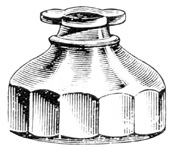
On the Occasion of a Favorite Professor Turning the Pen on Himself
TO SIR, WITH LOVE
Peter Kreeft is an anomaly. He calls himself a philosopher — without irony, apology, or hesitation. That alone makes him uncommon these days. He’s also unabashedly Catholic, a point of pride in some circles, where his books have become familiar markers of faithfulness. You won’t hear him featured on National Public Radio’s Morning Edition. He doesn’t chase the Zeitgeist. But he turns out books as if he did — and he has spent just as long filling college classrooms, inviting students into what Boethius dubbed The Consolation of Philosophy. In a different era, he might have been one of Rome’s celebrated public thinkers. Instead, he’s carved out a steadier kind of success — in the lecture hall and on the printed page.
Kreeft’s gift isn’t just in philosophy — it’s in making the hardest parts of faith feel accessible. The all-male priesthood. Marian devotions. Mortal vs. venial sins. The many odd passages in the Bible. These aren’t easy things to explain, yet somehow Kreeft makes them make sense — and even seem reasonable. His books have become staples for many Catholics; they’ve also become bestsellers among born-againers, including at evangelical hubs like InterVarsity Press, where his titles have been popular for years.
Kreeft once jokingly tried to describe his writing style: “When they asked Mel Gibson what kind of a character he thought he had, he replied, ‘Somewhere between Saint Francis of Assisi and Howard Stern.’ I think my books are somewhere between G.K. Chesterton and Tim LaHaye.” It’s a laugh-out-loud line — and close to the truth.
Pausing here, I realize I sound like a fan. That’s because I am.
Kreeft earned his B.A. from Calvin College in 1959, pursued graduate studies at Fordham University, and completed postdoctoral work at Yale. After a brief teaching stint at Villanova (1962-1965), he settled into the philosophy department at Boston College, where he has spent the bulk of his career. Early on, he made a surprising move for a Calvin student: He converted from the Christian Reformed tradition to the Catholic Church. That was an awkward shift in the pre-Vatican II era, when Catholics were Catholic, Protestants stayed Protestant, and never the twain were meant to meet. A few Catholic thinkers had expressed sympathy for Protestant piety — e.g., Louis Bouyer in The Spirit and Forms of Protestantism (1954) and Gerald Vann even earlier in The Heart of Man (1944) — but these were maverick voices. Nostra Aetate, Vatican II’s decree on ecumenism, had yet to make the phrase “separated brethren” respectable. Kreeft crossed over before the thaw had begun, at a time when such moves were rare — and rarely encouraged.
You May Also Enjoy
It entirely translates and edits out the Bible’s teaching on fornication, and renders the doctrine of Hell if not invisible, then opaque.
People turn to the Catholic Church not so much because they are drawn by its beauty (though they sometimes are) as because they cherish truth.
Jesus confidently cites the destruction of Sodom and Gomorrah and refers to Jonah’s three days and nights in the belly of the whale.

